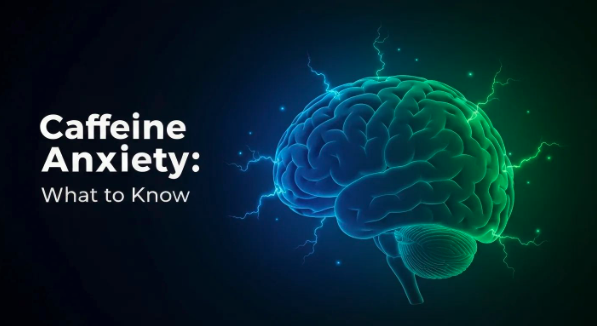The Critical Importance of Social Connections
Discover the vital link between social connections and mental well-being. Enhance your emotional health today!

The Impact of Social Connections
Social connections wield a significant influence on mental well-being, playing a pivotal role in emotional support and resilience within individuals.
Emotional Support and Well-Being
Social relationships are instrumental in fostering overall well-being by providing essential emotional support and creating a sense of belonging. According to New Hope MHCS, individuals who feel connected to others tend to exhibit lower levels of anxiety and depression. Moreover, research demonstrates that individuals with strong social connections often display higher levels of self-esteem, empathy, trust, and cooperation. This positive cycle of social, emotional, and physical well-being underscores the profound impact of social relationships on mental health.
Resilience and Social Relationships
The significance of social support extends to aiding recovery from mental illness and enhancing treatment outcomes. Individuals with robust social networks typically experience improved mental well-being, leading to lower incidences of depression, anxiety, and psychological distress, as highlighted by New Hope MHCS. Conversely, social isolation and loneliness can have detrimental effects on mental health, including an elevated risk of depression, anxiety, and cognitive decline. Prolonged feelings of loneliness can profoundly impact both mental and physical health, contributing to despair, diminished self-worth, and a decreased quality of life.
The integration of social connections provides vital emotional support, instills a sense of belonging, and fosters resilience during turbulent times. Throughout life's journey, the presence of supportive relationships remains a cornerstone of mental wellness, underscoring the critical role that social connections play in maintaining and enhancing mental well-being.
Importance of Social Support
When exploring mental well-being, the importance of social connections for mental well-being cannot be overstated. Social support plays a vital role in various aspects of mental health, from recovery to resilience. In this section, we delve into how social support contributes to the recovery from mental illness, the lowering of rates of depression and anxiety, and overall psychological distress and well-being.
Recovery from Mental Illness
Social support has been identified as a key factor in promoting recovery from mental illnesses and improving treatment outcomes. Individuals with robust social networks often experience better mental well-being, leading to more positive outcomes in their recovery journey [2].
For those dealing with mental health challenges, having a supportive network of family, friends, or community members can provide emotional comfort, practical assistance, and a sense of belonging, all of which are crucial for navigating the complexities of mental illness.
Lowering Rates of Depression and Anxiety
Studies have consistently shown that social connectedness is associated with lower rates of depression and anxiety. Research indicates that individuals with strong social ties are less likely to experience symptoms of depression or anxiety [3]. The support and understanding offered by social connections can act as a buffer against the negative impact of stressors and challenging life events, thereby reducing the risk of developing mental health issues.
Maintaining meaningful relationships and fostering social connections can create a sense of purpose, increase feelings of self-worth, and provide a source of emotional support during difficult times. This emotional resilience, nurtured through social bonds, plays a crucial role in protecting individuals from the adverse effects of depression and anxiety.
Psychological Distress and Well-Being
Social isolation and loneliness have been linked to increased psychological distress and decreased overall well-being. Research has shown that individuals who experience social isolation are at a higher risk of developing mental health issues, such as depression and anxiety.
In older adults, the impact of social networks on mental health becomes even more pronounced. Older individuals with restricted social networks are more vulnerable to developing depression. The presence of integrated social connections acts as a protective factor against mental health issues in this population, highlighting the importance of maintaining robust social networks, particularly in later stages of life [3].
By recognizing and embracing the significance of social support in mental well-being, individuals can actively cultivate meaningful connections, seek and provide support, and prioritize building a strong social network to enhance their psychological resilience and overall mental health.
Negative Effects of Social Isolation
In the realm of mental wellness, social connections play a vital role in shaping an individual's overall mental health. When discussing the importance of social connections for mental wellbeing, it's essential to address the negative repercussions of social isolation. This section sheds light on the detrimental effects of social isolation, including the increased risk of depression and anxiety, cognitive decline, and feelings of loneliness.
Risk of Depression and Anxiety
Social isolation and loneliness have been associated with a heightened risk of mental health disorders, particularly depression and anxiety. Prolonged periods of social disconnection can significantly impact one's emotional well-being, leading to feelings of despair, low self-worth, and a diminished quality of life [2]. Studies have shown that loneliness is independently linked to more severe depressive symptoms, especially in older adults [3].
The absence of meaningful social interactions can exacerbate feelings of sadness, hopelessness, and anxiety, making it challenging to cope with life's stressors. Engaging in social activities and forming connections with others are crucial in mitigating the risk of developing these mental health conditions.
Cognitive Decline and Loneliness
Another significant negative effect of social isolation is cognitive decline. Loneliness has been identified as a risk factor for disrupted cognitive function, leading to issues such as memory loss and impaired decision-making [3]. Elderly individuals are particularly vulnerable to the cognitive impacts of social isolation, emphasizing the importance of maintaining social connections as one ages.
Furthermore, loneliness can manifest in physical health disruptions, including disrupted sleep patterns, elevated blood pressure, and weakened immune responses [4]. For younger individuals, isolation can contribute to various health issues such as obesity, inflammation, and high blood pressure, which may escalate into more severe conditions like heart disease and stroke [4].
Understanding the negative effects of social isolation underscores the critical role of social connections in preserving mental wellness. By recognizing the impact of loneliness on mental health outcomes and taking proactive steps to nurture social relationships, individuals can safeguard their emotional well-being and cultivate a sense of belonging within their communities.
Diverse Social Networks
In the realm of mental well-being, the importance of social connections cannot be overstated. Cultivating diverse social networks that encompass family, friends, and the community is essential for promoting holistic mental wellness. Each type of social connection plays a unique role in contributing to an individual's mental well-being, ensuring a comprehensive approach to overall health.
Family, Friends, and Community
Family, friends, and community networks are the cornerstones of social relationships that provide emotional support and a sense of belonging. These connections offer comfort, encouragement, and a safe space for individuals to express themselves and seek guidance during challenging times. The bond shared with family members can offer a sense of identity and belonging, promoting emotional well-being and stability.
Friendships contribute to social support, companionship, and a source of joy, laughter, and shared experiences. The camaraderie among friends fosters feelings of happiness, reduces stress, and enhances overall mental wellness. Engaging in social activities and maintaining strong friendships can have a positive impact on mental health, fostering resilience and emotional well-being.
Community connections play a vital role in creating a sense of belonging and integration within a larger social context. Involvement in community events, volunteering, or participating in group activities can provide a sense of purpose, connection, and fulfillment. By interacting with diverse individuals within the community, individuals can broaden their social networks, gain diverse perspectives, and expand their support system.
Holistic Mental Wellness Approach
A holistic approach to mental wellness recognizes the interconnectedness of social relationships with emotional, psychological, and physical well-being. Research reveals that lack of social connection poses a greater risk to health than obesity, smoking, and high blood pressure, while strong social ties increase longevity and boost immune resilience.
Building and nurturing diverse social networks encompassing family, friends, and community not only enhances mental and emotional well-being but also contributes to physical health. The quality and quantity of social relationships significantly impact health behavior, mortality risk, and overall quality of life. Integrating social connections into mental health interventions and policies can be a cost-effective strategy for improving individual and community health outcomes [5].
By embracing a holistic mental wellness approach that values the richness of social connections, individuals can cultivate a supportive environment that promotes resilience, emotional health, and overall well-being. Strengthening family bonds, nurturing friendships, and actively engaging within the community are pivotal steps towards nurturing a thriving social network that fosters mental wellness and enriches the quality of life.
The Science Behind Social Connectedness
Understanding the scientific underpinnings of social connectedness sheds light on its profound impact on mental health and well-being. Two key aspects to delve into are stress buffering and emotional resilience, as well as how social connections play a role in mitigating life challenges.
Stress Buffering and Emotional Resilience
Social connections serve as a vital buffer against stress and adversity, playing a significant role in promoting emotional resilience. A landmark study highlighted by the Center for Compassion and Altruism Research and Education revealed that lack of social connection poses a greater health risk than obesity, smoking, or high blood pressure. Conversely, strong social bonds increase the likelihood of longevity by 50%, strengthen the immune system, aid in faster disease recovery, and may even extend life expectancy.
When individuals feel connected to others, research shows a decrease in levels of anxiety and depression. This sense of connectedness not only lowers anxiety and depression but also elevates self-esteem, fosters greater empathy, and promotes trust and cooperation. These positive attributes create an uplifting cycle of social, emotional, and physical well-being, building a resilient foundation to navigate life's challenges.
Mitigating Life Challenges
Furthermore, social connectedness plays a pivotal role in mitigating various life challenges, including the risk of depression and anxiety. Recent studies, such as the one highlighted by the NCBI, emphasize that maintaining social connections acts as a protective shield against depressive symptoms and disorders among adults in the general population.
Researchers, like Domènech-Abella and colleagues, have also uncovered findings linking social isolation and loneliness to potential antecedent risk factors for incident depression and exacerbated late-life generalized anxiety or major depressive disorder. The impact of strained social relationships on health is multifaceted, affecting behavior, psychosocial well-being, and physiological responses. Stress within relationships can contribute to negative health habits, psychological distress, physiological stress, and long-term health repercussions.
In summary, the intricate science behind social connectedness highlights its significant role in promoting emotional well-being, buffering against stress, and aiding individuals in navigating life's challenges. Cultivating and nurturing healthy social relationships is not only beneficial for mental health but also contributes to overall well-being and resilience in the face of adversity.
Cultivating Healthy Social Relationships
In the realm of mental wellbeing, cultivating healthy social relationships plays a pivotal role in enhancing emotional health and overall wellness. By strengthening social connections, individuals can reap significant benefits for their mental and emotional well-being.
Strengthening Emotional Health
Social connection has been linked to improvements in physical health as well as mental and emotional well-being. A significant study has demonstrated that the absence of social connection poses a greater health risk than obesity, smoking, and high blood pressure combined. Conversely, strong social connections have been associated with a 50% higher likelihood of longevity, enhanced immune system function, quicker recovery from illness, and potentially an extended lifespan [1].
Engaging in meaningful relationships, whether with family, friends, or within the community, can foster a sense of belonging, support, and understanding. These connections serve as a source of comfort during challenging times and joy during moments of celebration. By nurturing these social bonds, individuals can fortify their emotional resilience and navigate life's ups and downs with greater ease.
Activities for Enhancing Social Connections
To promote mental well-being through social connectedness, individuals can actively participate in activities that strengthen their social relationships. Reaching out to acquaintances such as coworkers, family members, and friends, and engaging in shared activities can cultivate stronger bonds and a sense of community. Building and maintaining connections with others is essential for combatting feelings of isolation and enhancing one's social, emotional, and physical well-being.
By integrating social interaction into daily routines, whether through face-to-face conversations, virtual gatherings, or group activities, individuals can establish a robust support network that promotes mental wellness. Initiating conversations, showing empathy, and participating in social events can all contribute to a deeper sense of connection and fulfillment in personal relationships.
In essence, prioritizing healthy social relationships is a fundamental component of mental well-being. By actively engaging with others, fostering meaningful connections, and nurturing existing relationships, individuals can strengthen their emotional health, cultivate resilience, and embrace the positive impact of social interconnectedness on their overall mental wellness.
References
More Resources
A team ready to start your journey.
Get in touch — today.
We are a safe space – a haven for exceptional individuals to receive discreet, personalized, in-person treatment and care.
.avif)

.webp)








